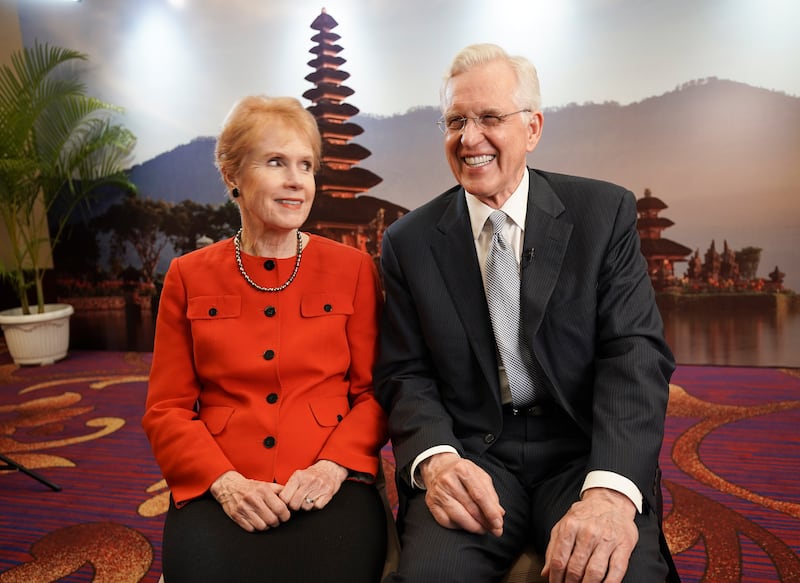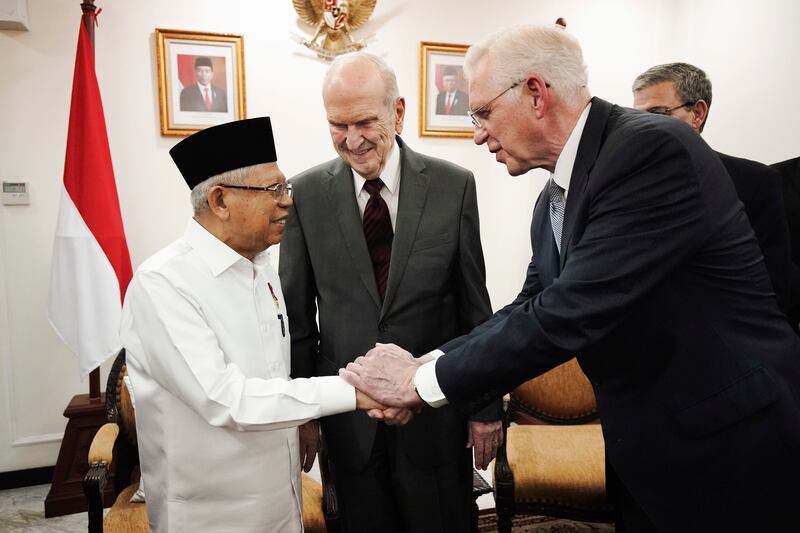Living in a pluralistic society requires authentic respect for different beliefs and points of view, but doesn’t demand the abdication of principles or the abandonment of truth. Truth is truth.
I have logged more than my share of miles over the past three decades to reach the far corners of the world. In experiencing so many cultures, religious beliefs, political systems and societal structures, I have come to value and take insight from each. I have enormous respect for my friends who follow different faith traditions and equally for those who hold political beliefs from across the spectrum. In our hyper-connected and politically-correct world, it is becoming increasingly easier to accept the false choice presented by moral relativism.
The narrative being served up is subtle. It says that there is no longer absolute good only relatively better — contingent on circumstances.
Elder D. Todd Christofferson, a world religious leader and member of the Quorum of the Twelve Apostles for The Church of Jesus Christ of Latter-day Saints, has been traveling across Southeast Asia this week with church President Russell M. Nelson. Elder Christofferson’s gentle way, brilliant intellect, deep spiritual core and quiet confidence have resonated with government and civic leaders as well as members of the faith.
Elder Christofferson is no stranger to the pursuit of truth. Early in his legal career he had a front row seat and witnessed firsthand the corrosive effects of situational ethics, the numbing of conscience and the danger of moral relativism. He served as a law clerk to Judge John Sirica during the Watergate scandal, which ultimately led to the resignation of President Richard Nixon.
As the ministry tour, which included stops in Vietnam, Cambodia, Singapore and Indonesia, drew to a close Elder Christofferson spoke of moral relativism during a media interview in a hotel ballroom in Jakarta.
“The idea of moral relativism, that truth is subjective, has some appeal initially,” Elder Christofferson began. “It’s the tolerant way to think you know, that everybody can decide for themselves what’s right and what’s true and live their life accordingly. And, nobody can question or judge that. As I say, that has on the surface some appeal, but when you think about it, it’s totally illogical. How can there be two truths that oppose each other and both be true?” he continued.

Pausing for a moment, Elder Christofferson’s voice lowered with a seriousness and earnestness of a wise and seasoned mentor who is willing to tell you, not what you want to hear, but what you need to know. He addressed that moral relativism is more than just illogical. “But more importantly, it’s really a statement that there is no God or that if he exists, he’s not involved. He doesn’t care. He doesn’t expect anything of us. I can’t accept that.”
Continuing, he said, “If there is a God, and there is, there are truths that are universal, that are not subjective, that he uses to help us become something. … He wants us to become something and enjoy what he enjoys, become as he is so that we can have the ultimate blessings that he offers.”
The application of moral relativism isn’t constrained by or confined to the deeply spiritual portions of human beings. There is a very practical tactical application of the false choice of moral relativism in daily living. While it appears to be accepting and progressive and inclusive, it actually prevents meaningful discussion and deeper dialogue about important issues.
The application of moral relativism isn’t constrained by or confined to the deeply spiritual portions of human beings.
Elder Christofferson noted, “If everyone is a determiner of truth and declares their own truth that’s unquestionable, that means if you disagree, you’re attacking them. It’s a personal attack,” which leads to the real breakdown of communication and the creation of conflict. “It’s not a discussion of pros and cons and what may be true or not true. If you disagree with my perception of what truth is, then you’re attacking me because that’s me.”
Like many of the great religious leaders and spiritual sages of ancient Southeast Asia, it is easy to imagine Elder Christofferson, with his white hair and gentle smile, peacefully and thoughtfully walking down a garden path conversing with a friend. In that moment, I could see him pausing for a moment and to draw from his deep knowledge and spiritual insight, then thoughtfully surmise the fatal flaw of moral relativism while providing forward-moving thinking to be applied.
Sitting in front of a peaceful mural in Jakarta, Elder Christofferson did just that.
“No wonder we have such division and conflict in the world if that’s the way we’re going to think,” he said. “It doesn’t work. It doesn’t work for society. It doesn’t work logically and it’s not true. Truth is truth. And if we’re guided by truth and absorb and learn as much as we can, so much the better, so much the better for ourselves and for society.”
Truth really is truth. We can live together in a pluralistic society without abandoning truth. Respect, even reverence, for people is the cure for the cancer of contempt in society and allows space for all to learn and grow without the alluring deception and limiting false-choice of moral relativism. Ultimately respect and reverence for others provides us all a place to begin a more peaceful and prosperous walk — together.


